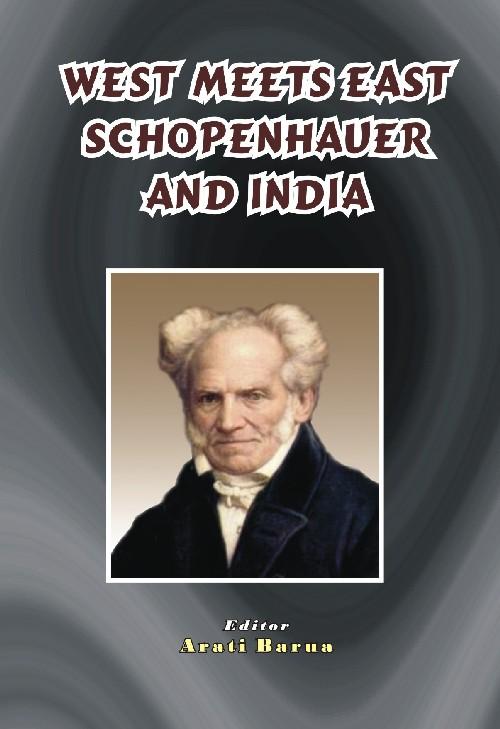There is a recent revival of interest in Schopenhauer studies in India with the impetus generated from the sincere and meticulous efforts made by IDSS in collaboration with Schopenhauer Research Center at the U of Mainz and the example is the publication of the first book on Schopenhauer and India from India in 2008. However, it is equally true that the Indian scholars have not yet put that much efforts as they perhaps should have to find a connection between Schopenhauer’s philosophy and Indian philosophy especially due to the fact that Schopenhauer had paid such great respect and homage to the Upanishads.
The lacking of serious efforts and interests in India to explore this area chiefly inspired us to organize different academic activities and the result of these exercises have amounted into the publication of this 2nd book in that direction which would be a tribute to that great personality who had adored India so much! We hope that this book will provide a common platform for interaction among the scholars from East and West to express their views on a very important subject on the link between Eastern and Western Philosophy.
We hope that, like the first book, this volume also would significantly contribute to a better understanding not only of the connection between Schopenhauer and Indian philosophical systems but also of the increasing interest and research in this area in India and Germany. It is further expected that this publication will make it possible for the English-speaking scholars particularly in India, to have the opportunity to be associated with the latest research works going on Schopenhauer’s philosophy all over the world.
The book includes papers of eminent scholars providing new lights on the relationship between Schopenhauer’s philosophy and the different Indian philosophical systems such as Vedanta and Buddhism and others. Apart from this there are also papers dealing with Schopenhauer’s views on Sanskrit literature, Schopenhauer and Indian Thought, Schopenhauer in relation to Hegel and Nietzsche, Schopenhauer on Salvation, Death and Contemplation, different levels of Maya in Vedanta and Schopenhauer, Svatantryavada of Kashmir and Voluntarism of Schopenhauer, Schopenhauer’s India Notes, Schopenhauer’s reception in India and Nirvana in Germany and so on. In the publication of this Volume it is hoped that it will accelerate renewal of cross-cultural interaction amongst the scholars of East and West which will further help in mutual understanding.
Schopenhauer’s main works in German language are now almost all available in English translation but still these are not easily available in India. The publication of these new volumes on Schopenhauer and India therefore is expected to provide a rich source of research materials for the English-speaking scholars all over the world including India.
From the Preface of the book:
Arthur Schopenhauer (1788-1860) the great German Philosopher is one of the first Western thinkers who understood the Upanishads in the true sense of the term.
He was also the first Western thinker who incorporated thoughts of Upanishads in his own philosophy. His appreciation for the Indian philosophy and culture is quite well known. Schopenhauer’s most important work The World as Will and Representation was influenced by the Chandogya Upanishad.
Schopenhauer said –
"In the whole world there is no study so beneficial and so elevating as that of the Upanishads. It has been the solace of my life, it will be the solace of my death”. .
Schopenhauer’s adoration for the Upanishads is clear from the fact that he kept the ‘Oupnekhat’ (Upanishads) open upon his table, and before going to bed at night he used to read few pages from it everyday. He called opening up of Sanskrit literature ‘the greatest gift of our century’ and predicted that the ‘philosophy and knowledge of the Upanishads would become the cherished faith of the West’.
Presently serious research work is going on in different disciplines in different academic Institutions and Universities in the West to examine the influence of Indian Philosophy and culture in the philosophical thinking of Germany, particularly in relation to Arthur Schopenhauer and vice versa. There is a recent revival of interest in Schopenhauer studies in India although it is equally true that the Indian scholars have not done as much work as they should have done to find out the connection between Schopenhauer’s philosophy and Indian philosophy especially due to the fact that Schopenhauer paid such great respect and homage to the Upanishads and Indian Philosophy.
The lacking of serious efforts and interests in India to explore this area chiefly inspired us to compile the first book “Schopenhauer and Indian philosophy: a dialogue between India and Germany” so as to initiate a serious work in this direction which was so far neglected by Indian scholars. This is the 2nd book in that direction and it is a tribute to that great personality who adored India so much! We hope that this book will provide a common platform for interaction to the scholars from East and West to express their views on a very important subject on the link between Eastern and Western Philosophy.
Initially the idea of the present volume sprang up from a discussion in a Roundtable conference organized by IDSS (Indian Division of the Schopenhauer Society) with the support of CSC (Center for Studies in Civilizations) , IPC (Indian Philosophical Congress) and Schopenhauer Gesellschaft, Germany, during the Interim World Philosophy Congress held at the University of Delhi. Later on we invited papers from eminent scholars from India and abroad to compile those into a book form. Hence the papers included here are the combination of the roundtable discussion as well as from an earlier international conference organized by IDSS at Delhi in collaboration with Schopenhauer Research Center, University of Mainz and Schopenhauer Gesellschaft, Germany. Besides these, most of the papers are invited papers from distinguished scholars from India and abroad as mentioned above.
We hope that, like the first book, this volume also would significantly contribute to a better understanding not only of the connection between Schopenhauer and Indian philosophical systems but also of the increasing interest and research in this area in India and Germany. It is further expected that this publication will make it possible for the English-speaking scholars particularly in India, to have the opportunity to be associated with the latest research works going on Schopenhauer all over the world.
I would like to take this opportunity to thank the IPC, Indian Council of Philosophical Research, Deshbandhu College, University of Delhi, India, and Schopenhauer Research Center at the University of Mainz, Schopenhauer Gesellschaft, Germany for sponsoring the Round table in Delhi. Further I would like to thank the distinguished scholars who have contributed their scholarly papers to the book.
Arati Barua
Author
- 13101 reads










Add new comment